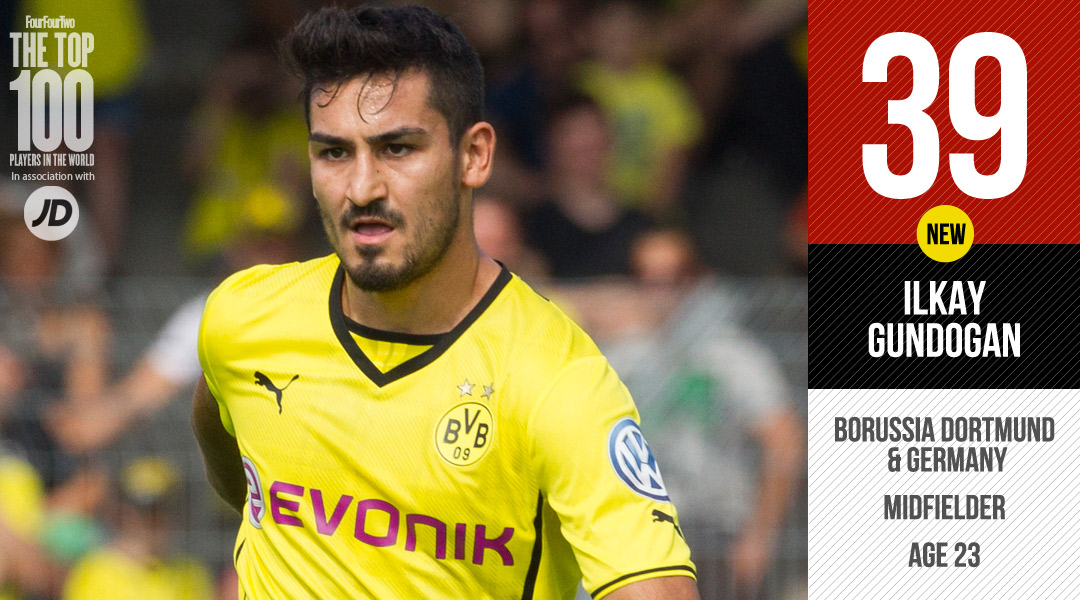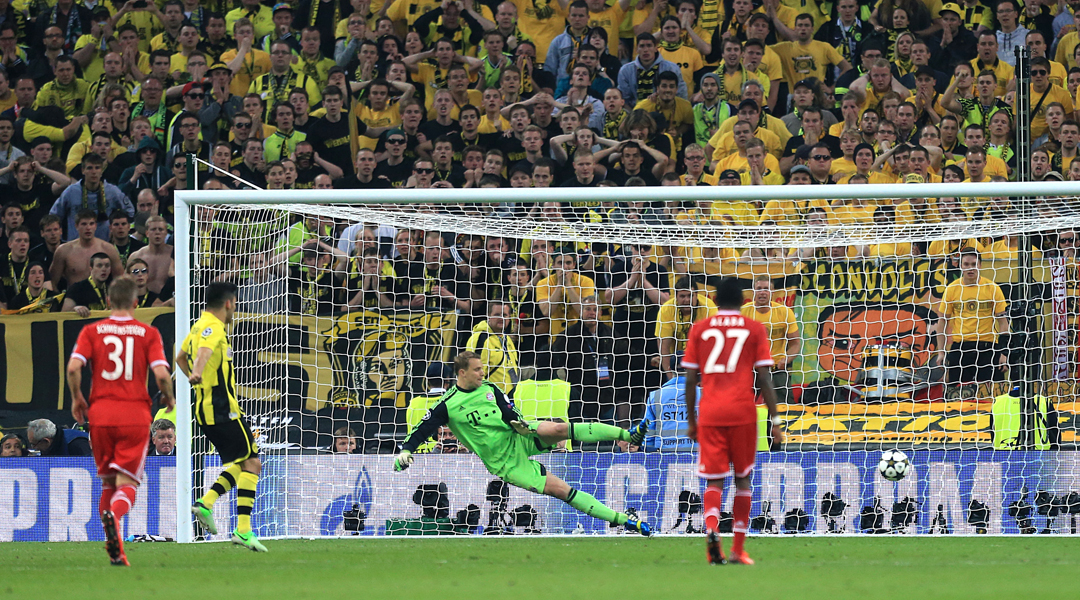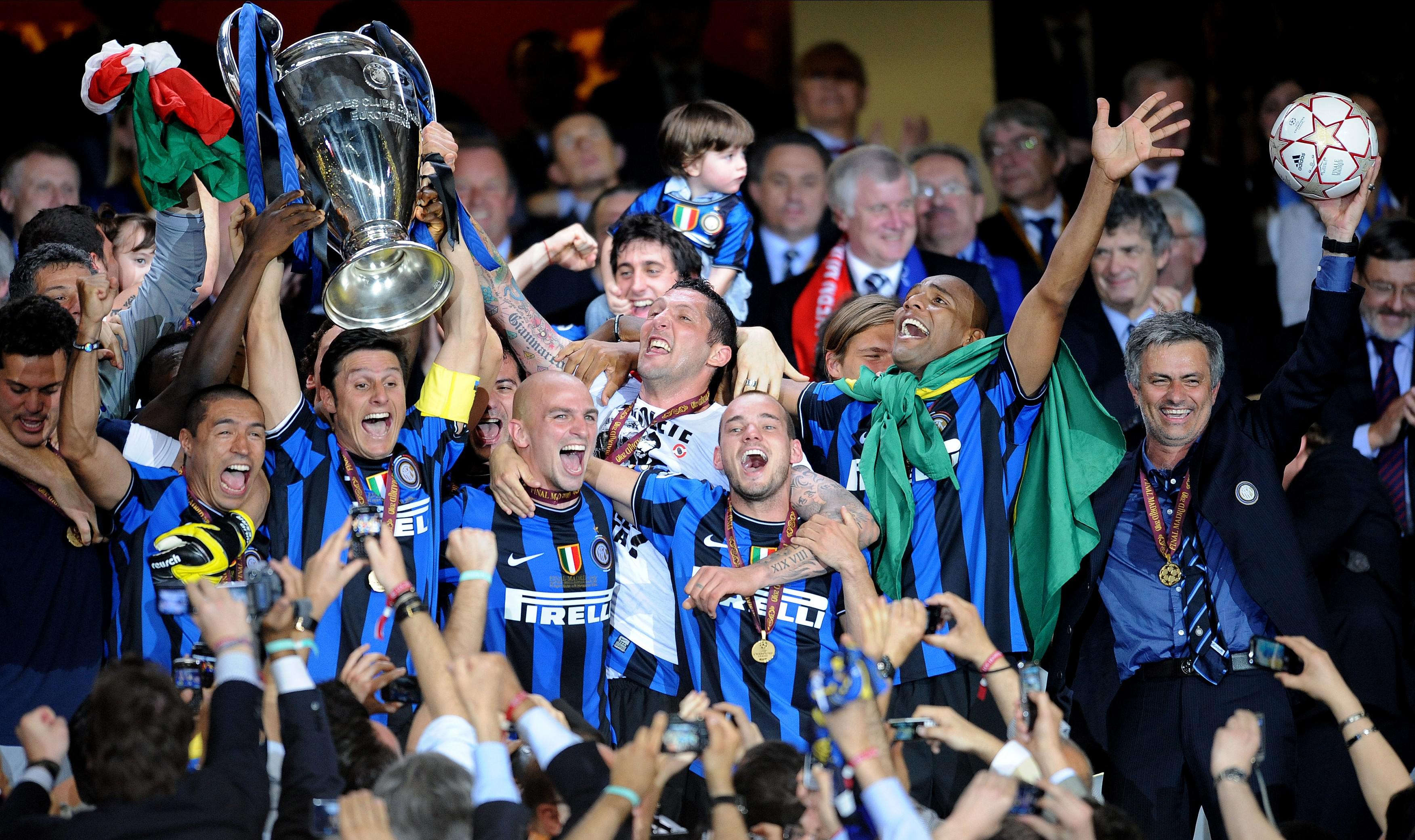Gundogan: The mobile midfielder who has become Dortmund's heartbeat
Michael Cox praises the brilliant German midfielder.

In a certain sense, Ilkay Gundogan represents everything good about the manner Borussia Dortmund conduct their business.
Dortmund’s first title success of the Jurgen Klopp era, back in 2010/11, was achieved with a settled, consistent group of players – in the days when Dortmund didn’t have to worry about European distractions, they didn’t rotate much.
The key man was Nuri Sahin, a Dortmund youth product, and the youngest player in the history of the Bundesliga. He captained the side from the centre of midfield, and was voted the Bundesliga’s Player of the Season shortly after lifting the title. He slid forward majestically from a deep-lying midfield role, combining impressive pass completion statistics with an ability to play penetrative passes.
But Sahin departed for Real Madrid at the end of the campaign. Klopp had lost his key man. But there was no panic – instead, Dortmund compensated by welcoming back veteran Sebastian Kehl from injury, illustrating their belief in the qualities of existing squad members, and by purchasing cleverly from elsewhere in the Bundesliga. Gundogan had a good campaign with Nurnberg, but there was nothing to suggest he was ready to replace the best player in the Bundesliga – he was uncapped, unheralded and a relatively obscure replacement, and only cost €4m.
Protégé on pole
Yet he adapted immediately, and just 18 months later, Sahin returned to the squad after unsuccessful spells with both Madrid and Liverpool. He wasn’t the returning hero – instead, he had to play second fiddle to Gundogan, who was now the key man in midfield. That, it’s fair to say, is how to replace your best footballer.
Gundogan is not dissimilar from Sahin. Not only were both born in Germany to Turkish parents, but they also both occupy the same position and are simultaneously technical and physical. In fact, they’d previously become friends, even when not together at the same club, and exchanged phone numbers. Gundogan described Sahin as being like a big brother.
Get FourFourTwo Newsletter
The best features, fun and footballing quizzes, straight to your inbox every week.
“Ilkay brings a great attitude,” said Klopp when Gundogan signed. “He has a great passing game, is a complete player, and fits perfectly into our footballing system.” Crucially, he said something else. “He is willing to learn and is very smart.”

Gundogan had to be willing to learn, because early on in his Dortmund career, he struggled. He didn’t quite have the dynamism, confidence or aura of Sahin, and was unable to inspire Dortmund in attack. He wasn’t doing anything badly, but he wasn’t contributing to the quick transitions, he wasn’t always pressing at the right moments. Kehl often played alongside Sven Bender, with Gundogan on the bench.
“It was a tough time,” Gundogan remembers. “Things hadn't gone as well as I had thought, and the coach was right to take me out of the team and protect me. It did me good to take a step back and regain some perspective.”
Turnaround
But a winner in the German Cup semi-final against Greuther Furth, struck in the final seconds of extra-time, seemed to transform Gundogan’s Dortmund career. He positioned himself differently, moving forward more to receive the ball in advanced positions, rather than being shuttling forward in possession. He played more killer passes, and linked with Dortmund’s attacking quartet.
By the midway point of last season, during which Dortmund reached the Champions League final for the first time since 1997, Gundogan had become one of the side’s key players. He also became something of a leader, too – perhaps tellingly, at roughly the same time as Sahin returned to the club.
He was particularly excellent during Dortmund’s quarter-final match away at Malaga, even as Dortmund only managed a goalless draw. Malaga tried to press Dortmund high up the pitch with their four attacking players, and so Gundogan dropped into the back, received the ball from the centre-backs to help get around the press, and then repeatedly fed the attacking players before storming forward to join them. He completed over 21 more passes than any other player on the pitch – even at that point, just seven months ago, opponents seemed relatively happy to allow him the ball.
But Gundogan is equally useful without the ball – his work rate is excellent, and he’s one of the most mobile players in an ultra-energetic young side. Against Real Madrid, Dortmund enforced high tempo spells at the start of both halves to ensure their dominance in a historic 4-1 win, and Gundogan was probably the key player in this respect, pressing Luka Modric brilliantly and overawing Sami Khedira, the man he’s effectively attempting to replace at international level. He won all four tackles, and completed all four dribbles – this was a midfielder taking the fight to the opposition.
The final ended in tears, of course, with Bayern’s 2-1 win – but Gundogan stepped up to coolly score Dortmund’s penalty, illustrating his lofty status within the squad.
In the 2012/13 season, arguably no other footballer in Europe enhanced their reputation as much as Gundogan – and you get the feeling there’s more to come.
FFT100: The full list of The Best 100 Players in the World, 2013
